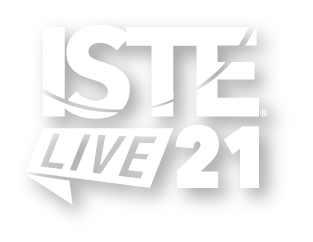

Creating Engaged Citizens With Real-World Project-Based Learning |
Participate and share : Interactive lecture
Suzie Boss
Although a healthy democracy depends on engaged citizens, time devoted to teaching citizenship has dropped significantly in the past 20 years. Schools can play a critical role in filling the “civics void” that students experience, especially if teachers are savvy users of technologies and online projects that support active citizenship.
| Audience: | Coaches, Curriculum/district specialists, Teachers |
| Skill level: | Beginner |
| Attendee devices: | Devices useful |
| Attendee device specification: | Smartphone: Android, iOS, Windows Laptop: Chromebook, Mac, PC Tablet: Android, iOS, Windows |
| Participant accounts, software and other materials: | Twitter account useful but not essential for sharing reflections, connecting with others. |
| Topic: | Project-, problem- & challenge-based learning |
| Grade level: | PK-12 |
| Subject area: | Language arts, Social studies |
| ISTE Standards: | For Educators: Citizen
Global Collaborator
|
| Additional detail: | ISTE author presentation |
Although many school systems profess a vision of preparing students to be tomorrow’s citizens, movement toward that goal is sorely lacking. The Campaign for the Civic Mission of Schools describes the current situation—including a steady decline in time devoted to civic education--as nothing less than a “slide into civic illiteracy” (2020). Political scientists decry the prevalence of “civic deserts,” where there are few or no opportunities for people to discuss issues and address problems. This is the current reality for an estimated 60 percent of rural youth and 30 percent of their urban and suburban peers.
Yet we know from recent events that young people are not only interested in what’s happening in their world, but are keen to contribute. From global climate change heroes like Greta Thunberg to elementary students who are working to make a literacy a civil right in the “book deserts” of Detroit, Mich., students are looking for ways to contribute to their world. The recent pandemic and national focus on racial equity have heightened the need for students to make sense of events by becoming more media literate, and to contribute to problem solving in productive ways.
Teachers are ideally positioned to fill this void, with high-quality, technology-enabled PBL that builds students’ capacity to be engaged, informed, active participants in their communities and the wider world. This session will showcase a wide range of effective projects. Some have a hyper-local focus (for example, students using GIS to map safe walking routes to school or analyzing air quality data near railyards in low-income communities), while others challenge students to contribute to progress toward the United Nations Sustainable Development Goals.
Whether local or global in focus, quality projects share a similar structure and teaching strategies, which this session will unpack. Teachers will find connections to their practice whether they teach elementary or secondary grades, and across all content areas—including math, science, and the arts.
Finally, effective citizenship education encompasses the development of digital citizenship. Through PBL, students develop research and media literacy skills; they harness digital tools to investigate issues and analyze data; they use social media responsibly to connect with others who may have a different perspective or life experience from their own. In advocating for solutions, students must understand the needs of their audience and use effective communication strategies and tools to convince others to join them in shaping a more equitable, sustainable world.
NOTE: Outline revised upon ISTE request to change format to Main Stage lecture, 45 min.
Entry event: Participants tweet examples of how their students learn to be informed, engaged, empowered learners (2 min.)
Introduction: Presenter provides context about challenges to building students’ capacity as engaged, informed citizens (12 min.)
Vision for change: How schools' emerging visions (i.e., Portrait of a Graduate) put citizenship at forefront of learning (8 min.)
Case studies: Presentation of several examples that show how students from K-12 are contributing as citizens while deepening their understanding of academic content. (15 min.)
Design opportunity: Strategies for teachers and school leaders to amplify civic engagement across content areas, grade levels (5 min.)
Digital toolkit: Digital resources, such as gaming platforms that focus on citizenship goals, geoliteracy projects that use GIS for community problem solving, resources for building media literacy, curriculum resources; and platforms for connecting students across time zones and cultures. (1 min.)
A large body of research supports the benefits of PBL to engage diverse learners, and similarly deep resources support the urgent need for civic education. Some of the key research and resources that will inform this session include:
Boss, S. (2020). “Pushing the Boundaries of the Traditional Classroom through Project Based Learning." The Blue DOT, Special Issue: Reimagining Learning Spaces for Uncertain Times. (New Delhi, India: UNESCO, Mahatma Gandhi Institute of Education for Peace and Sustainable Development). Retrieve https://mgiep.unesco.org/the-bluedot
Boss, S., and Krauss, J. (2018). Reinventing project-based learning: Your field guide to real world projects for the digital age, 3rd Ed. Eugene, OR: ISTE.
Boss, S. with Larmer, J. (2018). Project based teaching: How to create rigorous and engaging learning experiences. Alexandria, VA: ASCD.
Campaign for the Civic Mission of Schools. (2020). Civic education in 2020. Cambridge, MA: CivXNow.
Jaquith, A., and Zielezinski, M. (2018, Nov.). Evaluating deeper learning: Retrospect and prospect. SCOPE Research Brief. Stanford, CA: Stanford Center for Opportunity Policy in Education.
Gould, J., Jamieson, K., Levine, P., McConnell, T., and Smith, D., eds. (2011). Guardian of Democracy: The Civic Mission of Schools. Rep. Philadelphia: Leonore Annenberg Institute for Civics of the Annenberg Public Policy Center at the University of Pennsylvania and the Campaign for the Civic Mission of Schools. Download from https://www.carnegie.org/publications/guardian-of-democracy-the-civic-mission-of-schools
Larmer, J., Mergendoller, J., and Boss, S. (2015). Setting the standard for project based learning. Alexandria, VA: ASCD.
National Commission on Military, National, and Public Service. (2020). Inspired to Serve. Author: Washington, DC. Download from https://inspire2serve.gov/sites/default/files/final-report/Final%20Report.pdf

Suzie Boss is a writer and educational consultant from Portland, Oregon, who focuses on the power of teaching and learning to improve lives and transform communities. She’s the author of 10 popular books for educators, most recently Project-Based Teaching: How to Create Rigorous and Engaging Learning Experiences and Reinventing Project-Based Learning: Your Field Guide to Real-World Projects in the Digital Age, 3rd Ed. She collaborated with award-winning teacher Stephen Ritz to tell his inspiring story about classroom innovation in The Power of a Plant. A regular contributor to Edutopia, member of the PBLWorks National Faculty and frequent conference presenter, she consults with schools and nonprofit organizations worldwide that are interested in shifting to a more student-centered, innovative approach to teaching and learning. Her work has taken her to nearly every continent, reflecting the increasing global interest in real-world learning enabled by digital tools.